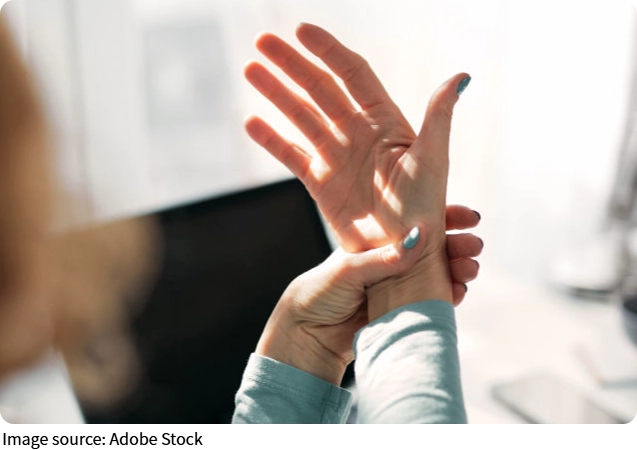Morning Joint Stiffness

Morning joint stiffness is a common complaint that often reflects the natural effects of prolonged inactivity during sleep.
When joints remain immobile for several hours, the synovial fluid which lubricates and nourishes joint cartilage becomes more viscous and less evenly distributed.
This leads to a sensation often described as "morning gel," where joints feel rigid and resistant to movement upon waking.
Osteoarthritis: The Wear-and-Tear Culprit
Osteoarthritis (OA) stands as the most prevalent cause of morning stiffness, particularly in older adults. This degenerative joint disease gradually erodes cartilage. As cartilage thins, joint surfaces become rough, and the production of synovial fluid diminishes, exacerbating stiffness. Unlike inflammatory arthritis, OA-related stiffness typically lasts less than 30 minutes and improves with activity.
Inflammatory Arthritis: When the Immune System Attacks
In contrast to OA, inflammatory arthritides such as rheumatoid arthritis (RA), psoriatic arthritis, and ankylosing spondylitis involve immune-mediated inflammation of joint tissues. This inflammation causes swelling, pain, and prolonged morning stiffness often lasting an hour or more. The immune system's attack leads to synovial membrane thickening and increased fluid accumulation, which intensify stiffness after periods of rest.
Other Medical Conditions Contributing to Morning Stiffness
Beyond arthritis, several other factors can provoke morning joint stiffness:
Tendinitis and Bursitis: Inflammation of tendons or bursae surrounding joints can cause localized stiffness and pain, especially after inactivity.
Gout: This metabolic disorder leads to uric acid crystal deposits in joints, triggering acute inflammation and stiffness, often in the early morning.
Muscle Tightness: Tightness in muscles such as the quadriceps or hamstrings can place abnormal stress on joints, contributing to stiffness upon waking.
Sleep Posture and Environment: Poor sleeping positions or unsupportive mattresses can strain joints and muscles overnight, worsening stiffness.
The Role of Inactivity and Inflammation Overnight
During sleep, the body's natural anti-inflammatory hormones, like cortisol, reach their lowest levels, which can allow inflammatory processes to intensify. Additionally, immobility causes fluid to accumulate in joint spaces, increasing pressure and stiffness.
Dr. Angela Brooks, an immunologist, notes, "The combination of decreased hormone-mediated inflammation control and joint inactivity creates a perfect storm for morning stiffness, especially in those with underlying inflammatory conditions."
Strategies to Alleviate Morning Joint Stiffness
Addressing morning stiffness involves both lifestyle adjustments and medical management:
Gentle Morning Movement: Stretching and light exercise soon after waking can enhance synovial fluid circulation and reduce stiffness.
Heat Therapy: Warm showers or heating pads increase blood flow and relax muscles and joints.
Optimizing Sleep Environment: Using supportive mattresses and pillows to maintain proper alignment reduces overnight joint strain.
Medical Treatment: For inflammatory arthritis, disease-modifying antirheumatic drugs (DMARDs) and biologics can reduce inflammation and stiffness duration.
Weight Management and Physical Activity: Maintaining a healthy weight and engaging in regular low-impact exercise strengthens muscles supporting joints.

When to Seek Professional Evaluation
If morning stiffness is severe, lasts longer than an hour, or is accompanied by swelling, redness, or systemic symptoms like fatigue or fever, it is essential to consult a healthcare professional. Early diagnosis of inflammatory arthritis or other underlying conditions can prevent joint damage and improve quality of life.
Morning joint stiffness arises from a complex interplay of mechanical, inflammatory, and lifestyle factors. While often a benign consequence of inactivity or age-related changes, persistent or severe stiffness signals the need for thorough medical evaluation.


